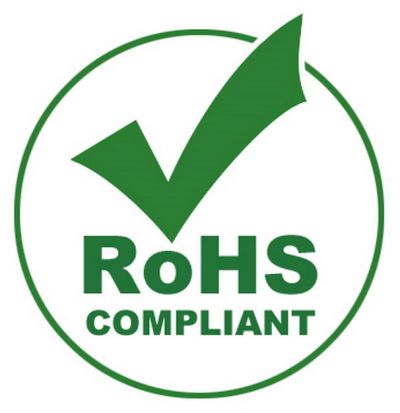
RoHS are the initials for Restriction of Hazardous Substances. Its formal name, the Restriction of Hazardous Substances Directive 2002/95/EC, is a compliance directive adopted and issued by the European Union (EU) in February of 2003. The directive banned the application or use of specific hazardous materials in the manufacture of electrical and electronic products (referred to collectively as EEE). The purpose was intended to prevent the harmful health effects which those materials pose to people subjected to it during occupational or frequent exposure. The measure was also intended to stop polluting landfills and the environment with hazardous waste from the material.
RoHS Directive
The RoHS directive is applicable to any company that manufactures, sells or distributes EEE products, parts, components, sub-assemblies, cabling to any country in the EU. This includes metal plating, anodizing, chromating or other types of finishes on components, heatsinks, or connectors used in production of EEE products. It also applies to any intermediary wholesalers that sell to resellers, distributors or integrators within the EU. Even manufacturers of components and parts who do not sell their products directly to European countries, may still have to comply with the European Directive if they are selling products to companies that do or in other U.S. States and countries that now follow RoHS.
Though originating in the EU, RoHS-like regulations have spread to a number of U.S. States and other countries, and have forced manufacturers who wish to do business with EU countries to comply with the regulations. In the U.S, states that have adopted similar RoHS measures include California, New Jersey, Illinois, Indiana, Minnesota, New York, Rhode Island, and Wisconsin. Other countries that recognize or have enacted similar RoHS regulations include China, Japan, and Korea.
History
Since the first RoHS directive adopted specified six dangerous substances used in the manufacture of EEE, it has been expanded and recast to include more categories of manufactured products and has added four more harmful substances to the list. Though there are sure to be more hazardous material and substances added to the list, the products compliant with this directive cannot exceed the allowable amounts of the following banned materials: lead, mercury, cadmium, hexavalent chromium, polybrominated biphenyls (PBB) and polybrominated diphenyl ethers (PBDE), with some limited exemptions, and four different phthalates (DEHP, BBP, BBP, DIBP).
RoHS originated as a response to the harmful effects that the properties of these materials release during manufacturing and subsequent handling. It was enacted to limit the exposure to dangerous materials and chemicals in consumer products that have been linked to serious health conditions such as cancer. The dangers of these materials became apparent after years of unnecessary exposure of both people and the environment. In effect, the ban has helped to protect and improve the health and welfare of consumers, distributors, manufacturers, and the overall environment.
The importance of RoHS’s enactment is apparent by a shortlist of the common products that were affected by the ban—large household appliances (refrigerators, freezers, etc.), small household appliances (vacuum cleaners, toasters etc.), computers and communications equipment, many other consumer electronics, lamps and lighting, power tools, many types of toys and sports equipment (video games, electric trains, etc.) and varying types of automatic dispensers (vending machines, ATM machines, etc.).
M.M. Newman Corporation Complies with RoHS
Because M.M. Newman Corporation manufactures products used in EEE, we are dedicated to, and recognize the importance of, the RoHS directives. We believe that RoHS compliance assures safer products for employees, consumers, and those who recycle the used products. We can assure our customers in the EU that we are compliant with the directive, and also to those third party customers that do business with the EU and states and other countries that have adopted RoHS regulations: M.M. Newman Corporation’s Heli-Tube® spiral wrap fully complies with RoHS standards.

